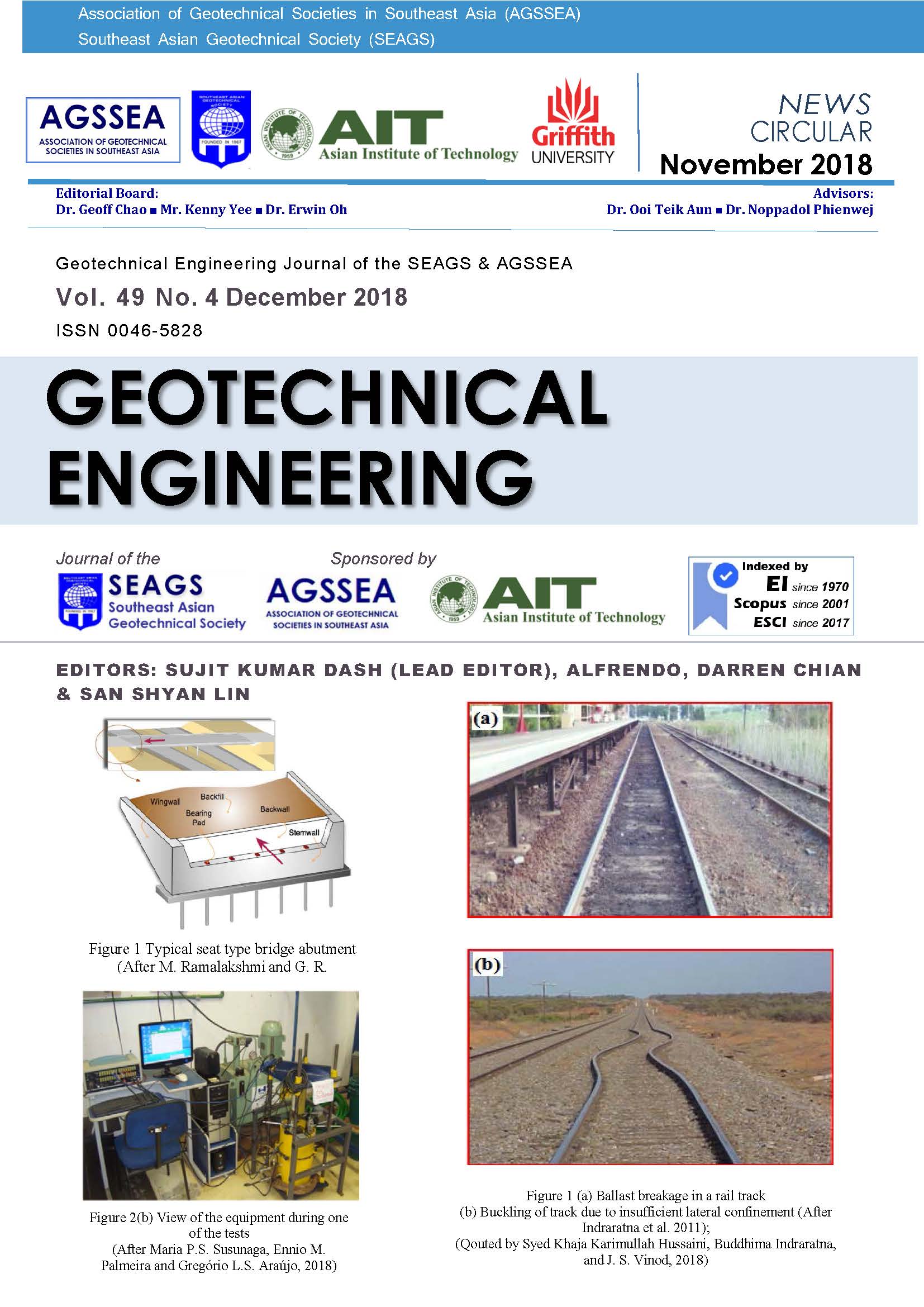Field and Laboratory Tests on the Bearing Behaviour of Unpaved Roads Reinforced by Different Geosynthetics
Main Article Content
Abstract
Field experiences have shown that the use of geosynthetics improves the trafficability of unpaved roads on soft subsoil. Specifically, the thickness of the base course and therefore the amount of high quality geomaterials e.g. crushed gravel can be reduced. Until now, the design is mainly based on empirical approaches based on results from experiments obtained in field tests. The thickness of the base course is increased until an adequate bearing capacity of the unpaved road is reached. There are extensive studies throughout the literature that confirm the mechanism of the bearing capacity improvement, but mostly cover only individual effects such as the influence of the bearing layer thickness at constant subsoil strength. Therefore, they cannot be extended to a general theory and design approach that can account for all of the important variables. To investigate the effectiveness of different geosynthetics in unpaved roads a series of loading tests on geotextile reinforced, unpaved roads were carried out both in the laboratory and in the field. Beside the bearing strength and stiffness of the soft subsoil, the base course thickness as well as the type, and hence the strength of the geosynthetics were varied in the tests. This paper presents a brief summary of the experimental results that may be used to evaluate models to predict the bearing capacity of unpaved roads.
Article Details

This work is licensed under a Creative Commons Attribution-NonCommercial-NoDerivatives 4.0 International License.
Copyright © 2019 Association of Geotechnical Societies in Southeast Asia (AGSSEA) - Southeast Asian Geotechnical Society (SEAGS).


